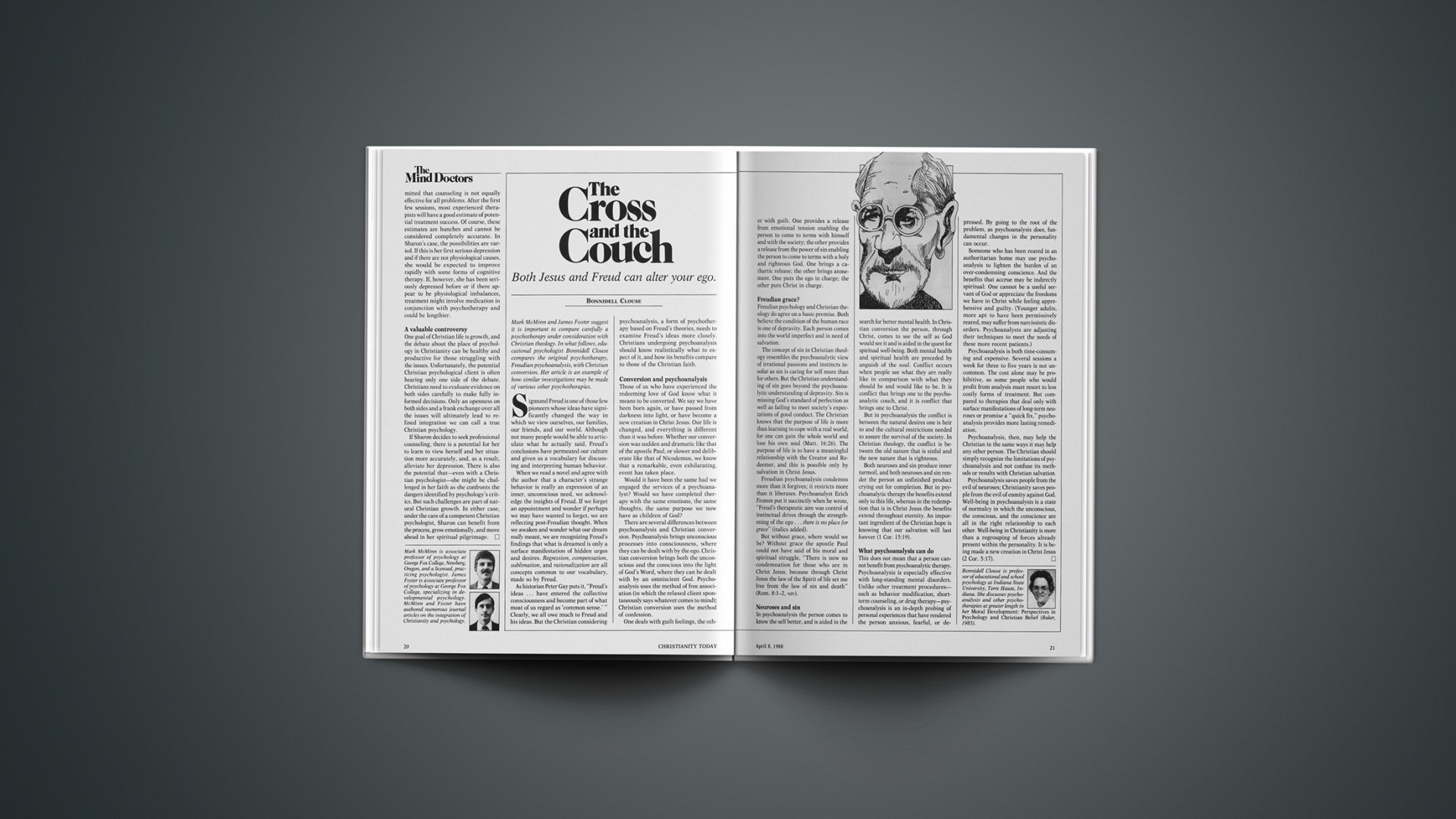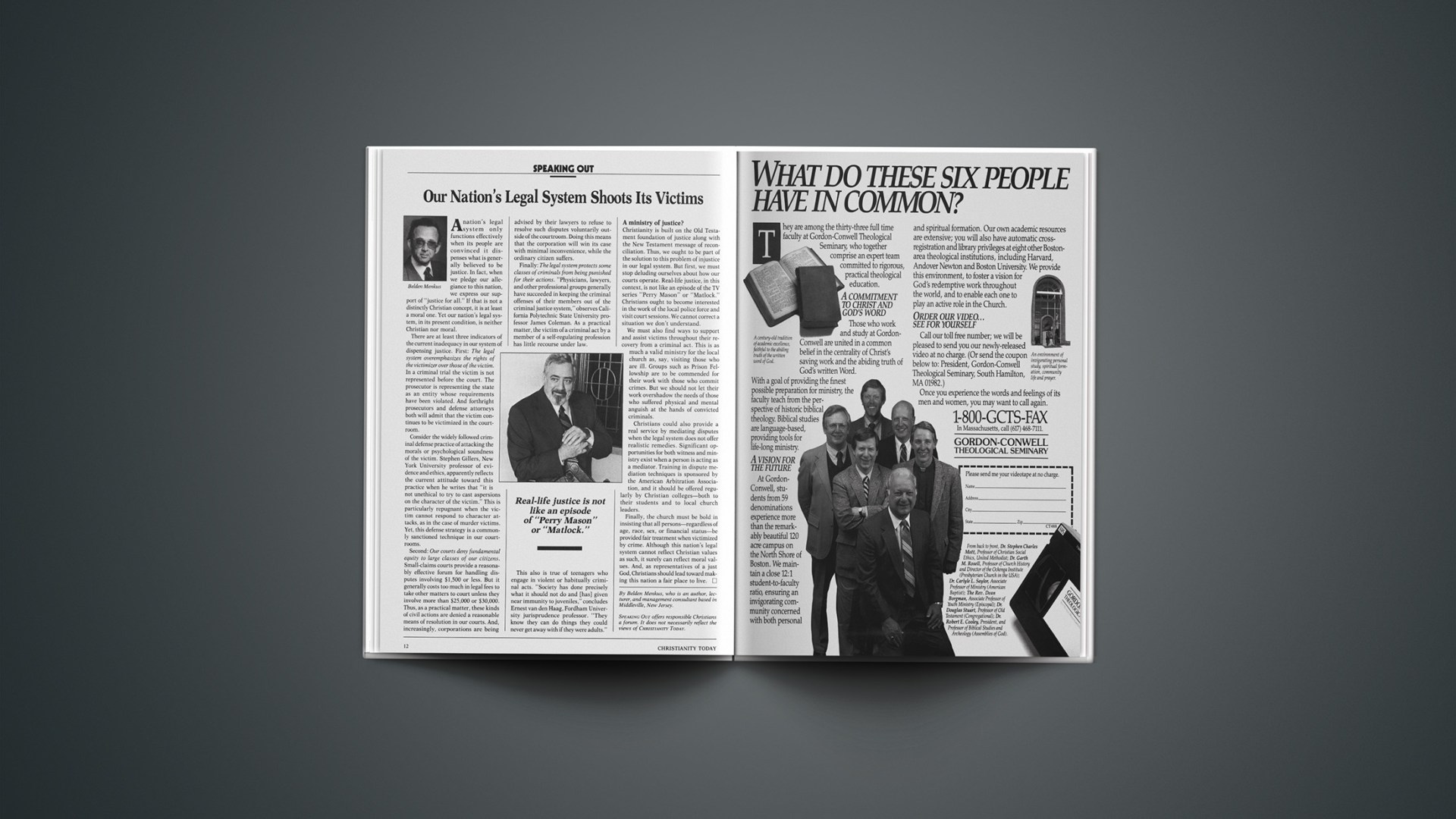Abou was prepared for death. In the last months of his life the “slim disease” had ravaged his body, trimming 90 pounds from his 175-pound frame. But the 30-year-old African school administrator had received loving care and counsel in the year since the disease that was turning him into a living skeleton had been diagnosed as AIDS. Family and friends constantly jammed his mission hospital room, talking, laughing, and praying.
Last year Abou died, one of a growing number of AIDS victims whose deaths are causing consternation in Africa, and fear for the future of the continent.
Tracking The Virus
At least one million Africans, mostly from central Africa, will die of AIDS in the next decade, according to the authoritative dossier, “AIDS and the Third World,” published by the Panos Institute, an international information and policy studies agency. As troubling as it is, that figure is probably low, the institute admits. In some African cities, a fifth or more of the population is already infected with HIV, the virus that causes AIDS.
Most of the victims are young men and women in their twenties and thirties, the people who fuel Africa’s delicately balanced economies. A disproportionate number are educated professionals like Abou, who are essential to the continued development of Africa. In parts of the continent, says the Panos Institute, the survival of whole industries and economies may be at stake.
The United States still has the highest number of reported AIDS cases—some 70 percent of the world’s total. But this may be due partly to the inaccuracy of statistics available from much of the developing world. World Health Organization (WHO) expert Jonathan Mann estimates that although only 66,000 AIDS cases have been reported to WHO since the beginning of the epidemic, some 100,000 to 150,000 cases have probably occurred. In fact, WHO believes about 10,000 AIDS cases are now occurring every year in Africa.
Several factors contribute to the difficulty in tracking the spread of AIDS in Africa. Some countries have not had the tools to make firm diagnoses; others don’t have a disease-reporting infrastructure. Still others, fearing negative publicity, have been unwilling to acknowledge they have a problem at all.
Early international publicity showing Africa as the source of AIDS angered government health officials, making many nations reluctant to release statistics revealing the extent of the disease. Some governments warned doctors not to speak publicly about the disease. At least one country refused doctors permission even to tell patients they had the disease. In 1982, only one African country was willing to report its AIDS cases to who. By 1985, 7 countries reported cases, and last year, 36 African countries reported their AIDS cases.
Underreporting, though, still hampers efforts to track the virus, who statistics published last fall listed 250 AIDS cases for Congo, while a New York Times reporter in Congo confidently reported the number at 1,200. In fact, no one really knows the extent of the disease.
Yet in the last six months, African countries have shown a new willingness to acknowledge the problem of AIDS, and to institute aggressive educational programs to curb its spread. Congo’s updated public-health campaign has included posters, television round tables, and radio call-in shows. In Zaire, printed literature explaining the cause and prevention of AIDS has been broadly disseminated.
In some African countries, posters and educational materials now proliferate in greater numbers than in the U.S., says Dr. Bill Heyward, chief of the Centers for Disease Control’s International Activities, AIDS Program. He says most African countries now receive some financial support and consulting help from outside groups.
A Heterosexual Disease?
AIDS in Africa, as in much of the developing world, occurs primarily within the mainstream of the heterosexual community. It has grown most rapidly in Africa’s burgeoning urban areas, where traditional values break down under the pressure of accelerated social change.
Prostitutes are thought to be major transmitters of AIDS. Some 80 percent of prostitutes in a Nairobi slum and 90 percent of Rwanda’s prostitutes are suspected of carrying the AIDS virus. In Congo’s coastal Pointe-Noire, whose brothels are frequented by sailors from around the world, 64 percent of prostitutes tested last year were found to have the AIDS virus.
The disease has also hit hard in certain rural areas where traditional social mores permit sexual encounters outside of marriage. In some Ugandan villages an entire generation has already died of AIDS, says one medical missionary. Only very young children and grandparents remain in those villages.
In addition to the sexual transmission of the disease, the generally lower public-health standards in much of Africa contribute to the spread of AIDS. For example, most African countries still do not have adequate blood-testing facilities. Thus, the AIDS virus may spread through transfusions of contaminated blood. The AIDS virus is also thought to be transmitted through unsterilized needles when injections are improperly given to multiple patients. The disposable, single-injection needles commonly used in the U.S. are prohibitively expensive for most African medical centers. Some missionary doctors fear the disease may be spread in mass immunization programs where needles are not properly sterilized.
Tragically, the disease is escalating among infants of mothers who carry the AIDS virus. Some 50 percent of babies born to HIV-infected mothers die within a year. Early last year, the Panos Institute predicted 6,000 Zambian babies would be born to mothers with the AIDS virus in 1987. This compares with some 400 babies and children in the U.S. who have developed AIDS since the epidemic started.
Although some African countries show little evidence of infection, other nations, like those in the so-called AIDS belt (see map, p. 38), are facing crises that amount to national disasters. Most affected are eight countries that stretch east to west across central Africa.
Uganda’s health ministers estimate 10 percent of the country’s population are HIV-infected. The Panos Institute says blood surveys in central and parts of eastern Africa reveal a prevalence of HIV infection greater than in even the worst-hit American cities.
Dealing With Fear
Because AIDS in Africa is not associated with homosexuality and drug usage, the disease does not bear the social stigma it carries in the West. Nevertheless, ordinary Africans are becoming increasingly reluctant to relate normally to its victims.
Some hospital administrators admit they have delayed discussing the disease with their staff. They are afraid medical workers will refuse to work with AIDS patients or will quit rather than face the risks associated with handling potentially infected human blood and body secretions.
Although Christian medical workers also have fears and concerns, mission and church officials believe their faithful ministry can be a testimony to others. “Christians who understand how the disease is transmitted and who have learned to trust God through other hazards can minister effectively in those situations,” affirms Dr. David Sorley, a missionary physician and epidemiologist with the Southern Baptist Foreign Mission Board. Sorley, who has served in Africa for nearly 12 years, admits a lot of Christians are “scared out of their wits” about AIDS.
Tom Houston, World Vision’s international president, believes the AIDS epidemic has placed Christians on trial. Comparing it to the leprosy of Jesus’ day, he says the organization and its people are “being challenged as to how sincere we really are about our purpose.”
“We are confronted with a very great need,” says Dr. Daniel E. Fountain, an American Baptist missionary. “We should set an example for our colleagues, showing that compassion overrides other concerns. Such care can be given in circumstances that are sound and adequate for health.”
The Church’s Response
Seeing the AIDS epidemic as a moral problem at base, Tokunboh Adeyemo, general secretary of the Association of Evangelicals of Africa and Madagascar, says churches now must deal more carefully and consistently with moral issues. At the Nairobi seminary where he is head of the theological studies department, Adeyemo has trained student teams to go into area schools to warn teenagers about the dangers of promiscuity.
In the central African country where American Baptist missionary Fountain works, church and Christian school leaders giving Bible-based AIDS education to young people and their parents find a receptive audience.
“People realize this has practical consequences,” says Fountain. “Young people are listening and asking questions.”
These young people must be the focus of renewed church attention, insists the Southern Baptist Foreign Mission Board’s Sorley. He notes AIDS is expected to attack selectively the sexually active 15-to 24-year-old age group. Because of their mobility, however, these are the very people who have been neglected by the church in its haste to grow as rapidly as possible. “Neglecting this group could consign many of these young people to death by AIDS and hell,” he warns.
While the church is making headway in helping to prevent AIDS, it has done little to minister directly to victims of AIDS. There are no rehabilitation or halfway houses for AIDS victims in Kenya, says Adeyemo. For a time, AIDS victims in Kenya were even denied access to hospitals. Now they are admitted, but are isolated in intensive-care wards, where access to them is restricted.
“In spite of the education we have received, many people still believe you shouldn’t even touch, not to mention go out of the way to minister to, AIDS victims,” Adeyemo says. “The church must address this issue.”
In Africa’s “AIDS belt” (see map, page 38), where the future of whole nations hangs in the balance, Adeyemo believes there is hope. “If the government, church, and society had continued to pretend this problem did not exist, I would have predicted a catastrophe,” he says. With education, attitudes—and, he thinks, behaviors—are changing.
The next decade will be critical for Africa. No one knows for sure how many of the perhaps millions who now carry the AIDS virus will actually come down with the disease. All that is known is that before it is over, many more people like Abou will waste away and die. “This reminds us of the urgent imperative of missions.” Sorley says, “We must go out into our AIDS-plagued world to persuade men and women to come back to God.” In almost a whisper he adds, “May God grant us wisdom.”
Answering Aids
What does the Bible have to say about AIDS? Thousands of men and women in Uganda are finding out as they learn the medical—and biblical—facts about one of the world’s most deadly diseases. The Answer Project is the brain child of Richard W. Goodgame, a Southern Baptist missionary physician who teaches medicine at Makerere University Hospital in Kampala, Uganda’s capital city.
Faced with an incurable disease about which medical science has more questions than answers, Goodgame went to the Bible for hope. There he found the kind of answers he believes could save lives, both physically and spiritually. The result was a two-page tract that at first was pasted inside the front and back covers of Bibles given away in seminar settings.
Now, because of the shortage of Bibles in Uganda’s four main languages, eight-page tracts in all four languages incorporate portions of Scripture along with explanatory material. Seminar participants read the medical facts about AIDS and how it is spread. Then they examine the Bible’s teaching on sexuality and marriage, responsibility toward people who are suffering, and how those who are dying of AIDS can know they have eternal life.
The program is now operated by a consortium of religious groups, including Roman Catholic and Protestant churches, and Christian medical and student organizations. Some 80,000 tracts have been distributed, in addition to more than 1,000 Bibles.
Providing adequate safeguards and appropriate facilities for treating AIDS victims is the problem. “We have far fewer services available to deal with AIDS than in the U.S.,” says Fountain. A limited budget denies many mission hospitals the kind of equipment they need. Also, it is often difficult to get even enough rubber gloves to protect health-care workers. Disposable needles are out of the question.
Further complicating the problem is the large number of clinics scattered throughout Africa. For example, one major mission hospital oversees 55 rural health centers in the surrounding countryside. Ensuring an adequate supply of gloves and materials for sterilizing syringes is a logistical nightmare.
The extremely high cost of treating AIDS presents yet another dilemma for mission policy makers. “Mission hospitals operate under very, very tight budgets,” says Dr. Richard Crespo, who is director of health training for MAP International, an evangelical service agency that provides health training and medical supplies to mission agencies with medical programs.
“Along comes an incurable disease that is costly to treat,” Crespo says. “This puts mission agencies in a difficult position. Do they put their money into saving people with malaria and hepatitis, which are curable diseases? Or do they allocate their limited resources to AIDS, where more and more people are requiring attention? On top of the normal load of curable diseases, they have this costly and fatal disease. It overburdens an already overburdened health system.”
World Vision expects the epidemic to have serious implications for child survival and primary health care in countries where it is involved. It warns in a policy statement that due to AIDS, the number of orphans and the cost of health care may increase dramatically.
By Sharon E. Mumper.











